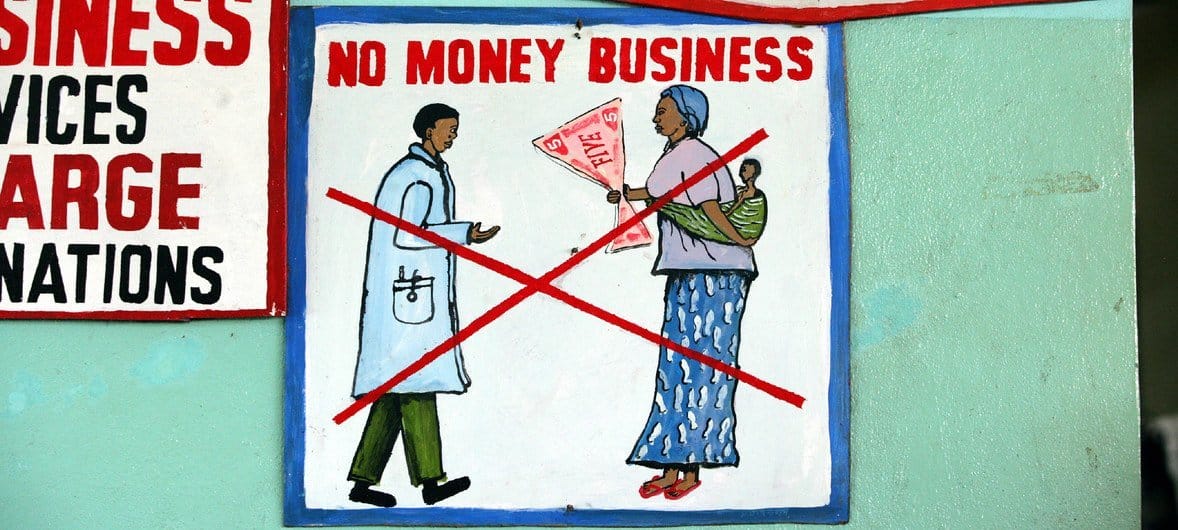Government’s Commitment to Combat Corruption

In a recent address in the Rajya Sabha, Dr. Jitendra Singh, the Union Minister of State for Science and Technology, reiterated the Indian government’s unwavering commitment to a “Zero Tolerance Against Corruption” policy. This statement comes as part of his response to an unstarred question regarding the government’s efforts to combat corruption. Dr. Singh outlined a series of measures that the government has implemented to enhance transparency and accountability within its operations. These initiatives aim to create a more citizen-friendly environment while reducing opportunities for corrupt practices.
Systemic Reforms for Transparency
Dr. Jitendra Singh emphasized the importance of systemic improvements and reforms in the fight against corruption. One of the key initiatives is the Direct Benefit Transfer (DBT) program. This program ensures that welfare benefits are disbursed directly to citizens, minimizing the chances of misappropriation. By eliminating intermediaries, the government aims to enhance transparency and efficiency in delivering services.
Additionally, the government has implemented e-tendering in public procurement processes. This move not only streamlines the procurement process but also reduces the potential for corruption by making it more transparent. The introduction of e-Governance has further simplified procedures, making it easier for citizens to access government services without facing bureaucratic hurdles.
Moreover, the Government eMarketplace (GeM) has been established to facilitate government procurement. This platform allows for a more transparent and competitive bidding process, ensuring that the best services and products are procured at fair prices. These systemic reforms collectively contribute to a more accountable government, fostering trust among citizens.
Recruitment Reforms to Enhance Integrity
Another significant step taken by the government is the discontinuation of interviews for the recruitment of Group ‘B’ (Non-Gazetted) and Group ‘C’ posts. This decision aims to eliminate biases and reduce the potential for corruption in the recruitment process. By relying on merit-based assessments, the government seeks to ensure that only the most qualified candidates are selected for public service roles.
Furthermore, Dr. Singh highlighted the invocation of specific rules to retire officials whose performance has been deemed unsatisfactory. This measure is intended to uphold accountability within the civil service. By removing underperforming officials, the government aims to enhance the overall efficiency and integrity of public administration.
The amendment of the All India Services (Disciplinary and Appeal) Rules and the Central Civil Services (Classification, Control and Appeal) Rules is another crucial reform. These amendments establish specific timelines for disciplinary proceedings, ensuring that cases are resolved promptly and fairly. This approach not only deters corrupt behavior but also reinforces the principle of accountability within the civil service.
Strengthening Legal Frameworks Against Corruption
The government has also taken significant steps to strengthen the legal framework surrounding corruption. The Prevention of Corruption Act, 1988, was amended in 2018 to criminalize the act of giving bribes. This amendment aims to hold senior management accountable for corrupt practices within their organizations, thereby creating a culture of integrity.
Additionally, the Central Vigilance Commission (CVC) has recommended the adoption of Integrity Pacts in major procurement activities. This initiative encourages transparency and accountability in public procurement, ensuring that any irregularities are investigated promptly and effectively.
The operationalization of the Lokpal institution marks another milestone in the fight against corruption. The Lokpal is tasked with receiving and processing complaints against public servants under the Prevention of Corruption Act. This institution plays a vital role in promoting accountability and integrity within the public sector.
The Role of Whistleblower Protection
The Whistle Blowers Protection Act, 2014, is another critical component of the government’s anti-corruption strategy. Although the Act has not yet been fully implemented, it aims to protect individuals who expose corruption and misconduct within public institutions. The government has recognized the need for amendments to safeguard national interests before bringing the Act into force.
In 2015, the government introduced the Whistle Blowers Protection (Amendment) Bill in the Lok Sabha. However, this bill lapsed upon the dissolution of the Sixteenth Lok Sabha. The government remains committed to revisiting this legislation to ensure that whistleblowers are adequately protected while encouraging transparency and accountability in public service.
Observer Voice is the one stop site for National, International news, Sports, Editor’s Choice, Art/culture contents, Quotes and much more. We also cover historical contents. Historical contents includes World History, Indian History, and what happened today. The website also covers Entertainment across the India and World.

